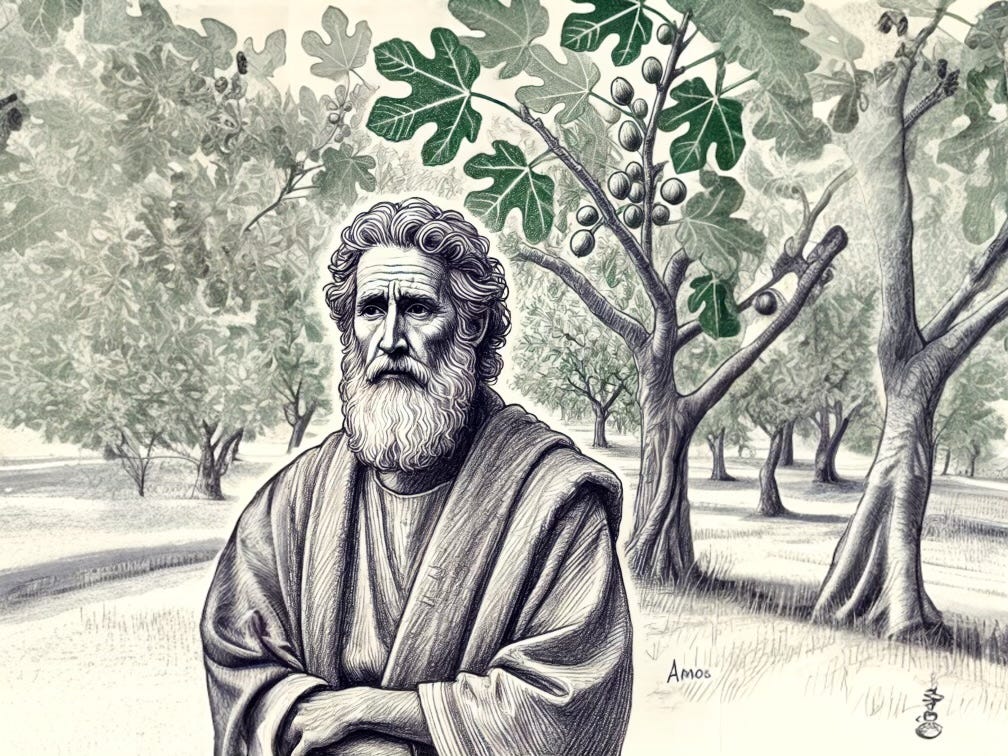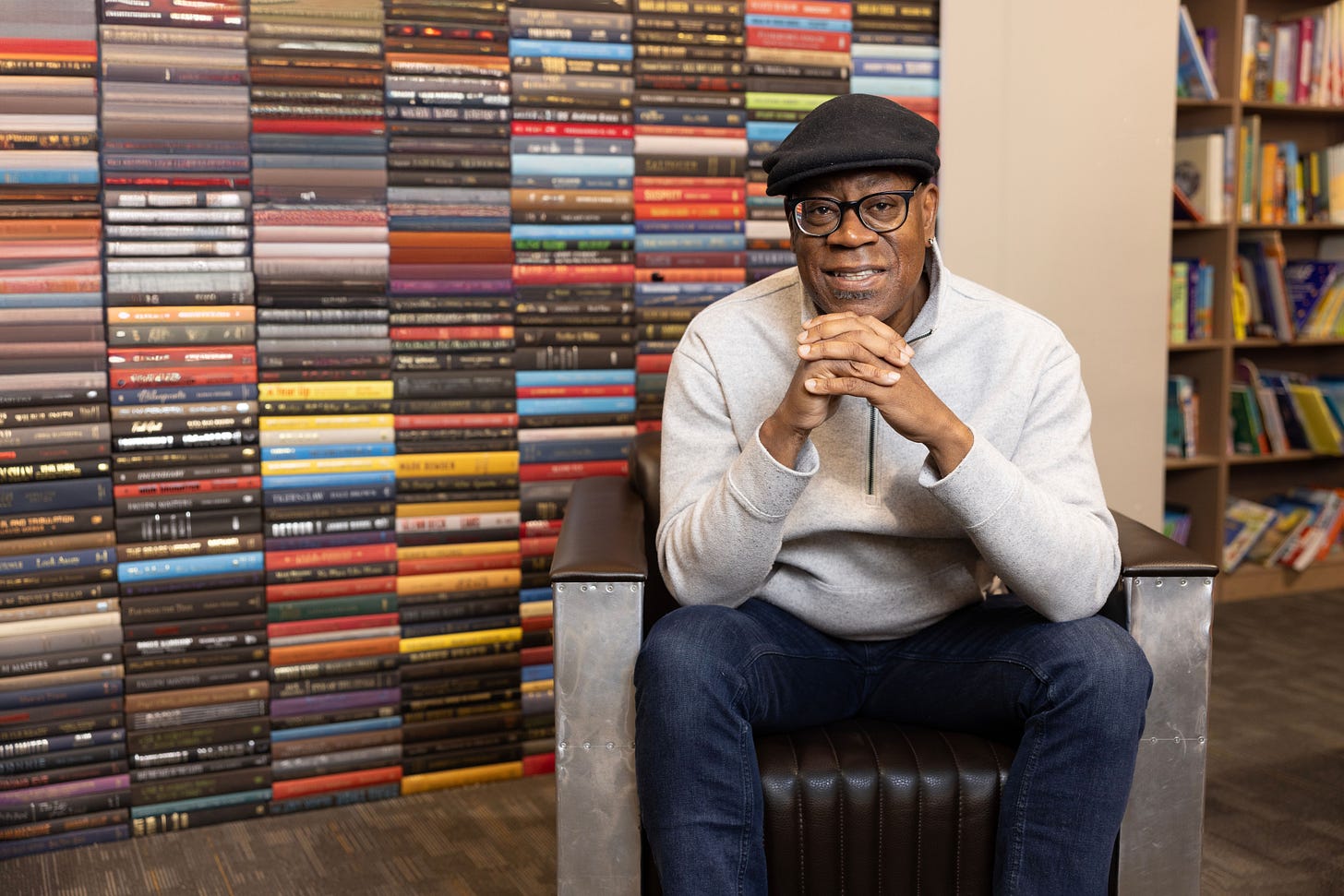What a Biblical Fig Picker Can Teach Us About Courage and Compassion
Amos, the prophet who emerged from humble origins as a shepherd and fig picker, stands as a profound figure in Christian biblical tradition.
Viewed through the lens of Taoist and Buddhist philosophy, Amos embodies the principles of humility, compassion, and the courage to stand for justice. His story reminds us that true wisdom and divine insight often arise from the most unassuming places and people.
From a Taoist perspective, Amos's life journey reflects the concept of "wu wei," or effortless action. The Taoist idea of wu wei is not about inactivity but rather about aligning oneself with the natural flow of the universe, acting with humility and purpose when the moment calls.
Amos, a simple shepherd and fig picker, did not seek the role of a prophet; he did not aspire to power or influence. Instead, he lived a life deeply connected to the land and the rhythms of everyday people.
His connection to nature, represented by his work as a fig picker, echoes the Taoist appreciation for the simplicity and wisdom found in the natural world. When called by a divine force to speak against injustice, he responded not out of ambition but out of an inner alignment with what he felt was the natural order—the Tao—demanding justice, compassion, and righteousness.
Similarly, from a Buddhist standpoint, Amos’s path aligns with the principle of "right action," one of the components of the Noble Eightfold Path. Buddhism teaches that right action involves living in harmony with ethical conduct, avoiding harm to others, and acting from a place of compassion and integrity.
Amos’s prophecies against the moral decay and social injustices in Israel resonate with this principle. He did not shy away from speaking the truth to power, even at great personal risk. His boldness came from a deep understanding of the suffering of the poor and marginalized—a reflection of the Buddhist value of compassion (karuṇā).
By standing against the exploitation of the weak and the greed of the powerful, Amos embodied the courage to act righteously, even in the face of opposition and personal loss.
Amos's story also offers a profound lesson in the impermanence and emptiness of worldly status, a core teaching in Buddhism. The Israelites, particularly the elite in the prosperous northern kingdom, had become attached to their wealth and power, blinded by their desire for material gain and social prestige.
In Buddhist terms, this attachment led them away from the path of truth (Dharma) and toward suffering (dukkha). Amos, as an outsider with no formal prophetic background, became a mirror reflecting the spiritual bankruptcy of those who believed their status protected them from accountability.
His humble origins as a fig picker and shepherd allowed him to see clearly the emptiness of such pursuits and to call for a return to genuine ethical living—valuing what is righteous and just over the transient allure of wealth and power.
The Taoist idea of "p'u," or the "uncarved block," speaks to Amos's raw and unadulterated nature. An uncarved block is a metaphor for a person who is simple, natural, and unpretentious—qualities that allow one to see things as they truly are.
Amos, unsullied by the corruption of power and the pretensions of the elite, embodied this purity. His message was direct and uncompromising because he spoke from a place of authenticity, untainted by the desire for favor or fear of repercussion.
Amos’ humble background gave him a unique perspective, enabling him to connect deeply with the common people and advocate for justice without the distortions of ego or societal expectations.
In the convergence of Taoist and Buddhist philosophy, Amos's life illustrates the power of the unassuming, the strength found in simplicity, and the profound impact of a voice aligned with natural justice and compassion. His courage to stand as an outsider, rooted in humility and driven by an authentic call for social justice, mirrors the timeless spiritual principles of acting from a place of inner truth and connection to all beings.
Amos teaches us that wisdom and divine purpose are not the exclusive domain of the privileged or powerful; rather, they can emerge from the humblest of places, where the soil is tilled, the figs are picked, and the heart remains open to the suffering of others.
Since 2022, I, Diamond Michael Scott, aka The Chocolate Taoist, have delivered uncommon nomadic wisdom to help you live a more interconnected and expansive life.
If this publication has been a source of wisdom for you then please consider helping me sustain it by becoming a monthly or annual contributor.
For just $6.00/month or $60.00/year, you’ll have the opportunity to share your lived experiences with fellow nomads, fueling fiery discussions that provoke, inspire, and challenge you to think differently.
So I hope you will take the plunge today and contribute to my mission of helping human travelers on this life journey.
Onward and Forward
Diamond Michael Scott aka The Chocolate Taoist





